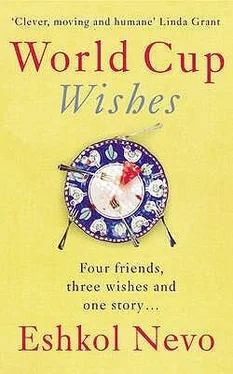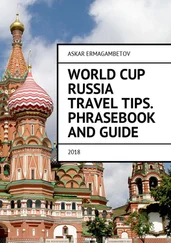And that’s what happened every time I tried to write ‘like’ someone. It didn’t matter whether that someone was a foreign woman writer of erotic fiction, or Garcia Marquez, or Tolkien. My fingers would freeze after a few sentences. I realised time after time that they would agree to tell the story about my friends in only one voice: the natural, primal voice that had written itself when I’d described the picture of us in the Sinai desert for that first exercise.
*
I barely spoke to my friends while I was writing. They were all caught up in their pregnancies, and I — in my literary pregnancy. The few times we spoke left me with a strange feeling. Not quite natural. And even worse was the fact that carrying on a real conversation with the imaginary characters I was writing about confused me so much that for several days after every conversation with my actual friends, I was unable to write.
So I tried to talk to them as little as possible. There were a lot of terrorist attacks during the months I was holed up in my apartment. People left their homes and never reached their destinations. Rivers of blood were spilled. Distant ambulance sirens wailed, then less distant, and then close by. But even when the shock waves actually shook the windows of my flat, I made do with the general knowledge that my friends were alive. I didn’t feel the need to hear from them how they were supposed to have been on the bus that blew up, or how exactly a week earlier, they’d been sitting in the café that had been destroyed. And when Ofir called and left a message that Yoram Mendelsohn the genius had committed suicide and left a letter explaining that his suicide was an experiment aimed at strengthening his scientific theory on reincarnation, I didn’t go to the funeral with them. And when Amichai called to ask what was happening with me and did I want them to buy me a ticket to the Chameleons’ absolutely-definitely-final performance, I called him back when I knew he wouldn’t be home. And left a message that, unfortunately, I wouldn’t be able to join them.
But on the other hand –
Throughout all the months of writing, I felt as if my friends were with me. Totally with me. Like they had been once, in high school, before the jobs and the ambitions and the Ya’aras came and caused us to grow distant from one another. True, they had no choice: I was the writer. I pulled the transparent strings and moved them from place to place and decided how they’d look and what they’d feel and when they’d speak and when they’d only bite their lips. And I gave myself the best, the cleverest lines in compensation for the fact that, actually, when we saw each other, I was silent most of the time, thinking my bitter little thoughts, or my generous little thoughts, and now all those thoughts had thrown off their restraining shackles, had broken out of their prison and were dancing the freedom dance on the enormous, white expanse of the page.
My sense of taste gradually returned. Hummus tasted like hummus again. Tahini like tahini. And my wave-pursuing-me nightmares ceased completely. I dreamed instead about letters and commas and full stops flickering on the walls, and I didn’t go near the window ledge any more because I knew that I had to live, had to stay alive another few months at least, to finish that book so that the matrix of World Cup wishes would be complete and beautiful and harmonious, like the Bahai Gardens.
And then, we’ll see.
*
In early April, three months before the World Cup final, I finished writing.
Due to time pressure, I gave the first version to two readers only: my tutor and the timid girl from the workshop.
The tutor came back to me with two major comments.
The first depressed me, but I had to admit that he was right: no matter how hard I worked on my Hebrew, no matter how much I improved it in an effort to uproot what my parents had planted inside me, there would still be many passages where vestiges of English syntactical structures echoed. The tutor marked twenty-two such places and recommended that I go to a copy-editor who would uproot all the rest. After going over what he marked, I realised that I had no choice but to follow his recommendation.
On the other hand, I utterly rejected his second comment. He claimed that the narrator has many blind spots, and he was particularly bothered by the one related to the wider context in which the events take place. ‘You write about changes in your characters, but almost completely ignore any dramatic changes occurring in the time and place you’ve chosen to write about. It can’t be that none of that seeped into the friends’ world!’
But that’s the whole point with friends, I argued with him (not to his face; he himself had gone to the Sydney Writers’ Festival). Friends are like a desert oasis where you can forget the desert … or like a raft in a stormy sea … or like …
Still — he interrupted me in my imagination — the ‘harmony’ your narrator is always trying to achieve, all that ‘Bahai symmetry’ — I ask myself, considering the disharmony in which he and we live, whether such an attempt isn’t inevitably doomed to failure.
Doomed to failure? Now I was really pissed off. Why?! Because in his books, which I didn’t like at all, every little personal moment always has to be symbolic of some great national issue? I don’t write to symbolise something national. I write to fulfil Ofir’s wish and complete the picture by the World Cup final. That’s all. And don’t nod at me now with that know-it-all, prophetic forgiveness, OK?
*
What bothered the timid girl most was the character of Ya’ara.
I don’t understand what she has, she said. Why are your protagonists so crazy about her?
I didn’t answer, as if admitting my guilt. Outside the workshop, the timid girl wasn’t so timid. Perhaps she’s one of those people who shrink into themselves in groups, I thought. In the workshop, her shoulders were always stooped, and now, in the café, they weren’t. In the workshop, her gaze was always cast down, especially when the tutor asked who wanted to read, and now her eyes shone at me. In the workshop, she hardly said anything, and now she leaned towards me, gesturing expressively with her hands as she spoke.
There’s something annoying about that Ya’ara, she said (her long fingers scratching the air). OK (her palms turned upwards in a ‘there’s-no-denying’ gesture) she’s beautiful (her hands drew cascading hair), so what? I personally felt (her hand moved to the top of her breasts) that your men deserved more.
Could be, I said, and thought: the fact that women don’t like Ya’ara is nothing new. Ya’ara has a sexual aura that women simply can’t feel, a way of making men feel very strong beside her, and then, all at once, she nails them with a remark that immediately sets their loins quivering. She’s always two contradictory things. And there’s something about her … there was something about her …
In any case, the timid girl said (and placed her hands firmly on the pile of pages), thank you for letting me read it. I mean, I’m glad I was the one you called.
She didn’t smile when she said the word ‘glad’. In general, there hadn’t been a drop of affectation in her voice during the entire conversation. From under her hand gestures flowed a sort of inner quiet, as if she already knew something very basic about herself and needed no confirmation of it.
And what about you? I asked after a brief, awkward silence. What about your writing?
I’m always writing in this notebook (a hand takes a notebook out of her bag and places it on the table), but they’re such personal things (two hands move in circles, as if around a crystal ball or as if throwing a pot on a wheel) that … I don’t think anyone would be interested in them.
Читать дальше












